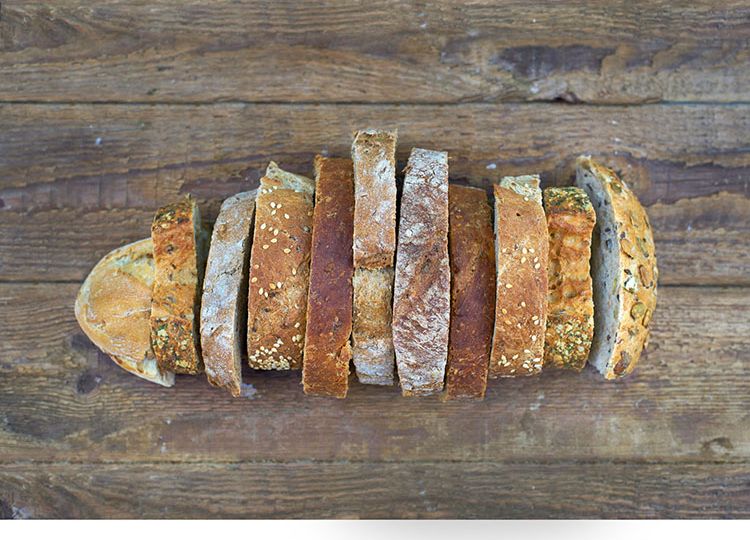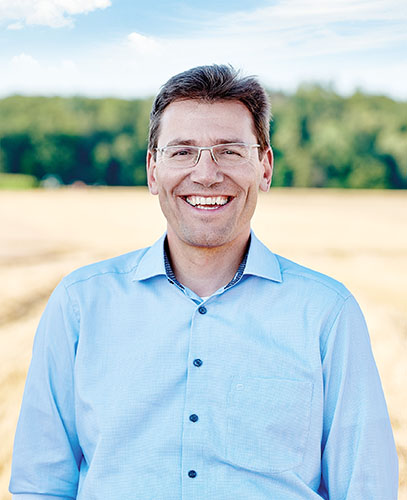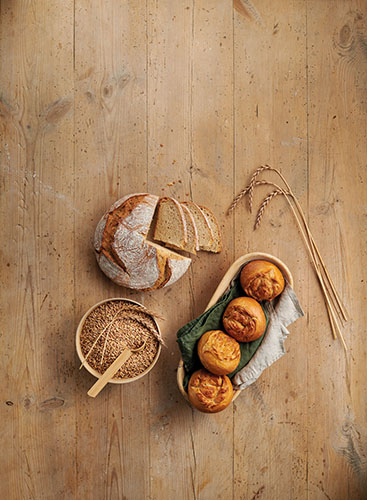
What does the market for ancient grains look like? And what impact is the growing health awareness of consumers having on demand? An interview with Ralph Seibold, Managing Director of SchapfenMühle GmbH & Co KG.
Helga Baumfalk: Mr. Seibold, Schapfen Mühle is considered a specialist for baked goods made from old grain varieties, especially spelt. Is the baked goods segment “ancient grains”, i.e. spelt, emmer, einkorn forest perennial rye etc., currently benefitting from the Corona-induced growing sense of healthy nutrition amongst consumers? And is this trend more noticeable in a particular grain variety?
Ralph Seibold: Spelt and the original cereal varieties emmer, einkorn and forest herbaceous rye have long been highly popular with consumers. I would therefore not like to place this development as a consequence of the Corona pandemic. The steadily increasing demand for food produced with flours or other cereal products from the so-called founder plants due to the
underlying health consciousness of consumers is one of the most powerful megatrends. According to food trend researcher, Hanni Rützler, this health trend will change our eating and drinking behavior forever. With Corona, the trend has merely received an additional jolt. Spelt is the most popular of the original grain varieties and this is clearly reflected in our range of products for the baking industry. As a grain specialist, we support our customers with high-
quality blends as well as mono-products. The development of these incorporates the current zeitgeist and consumer wishes. The mill premix Schapfen Dinkel Classico, which we introduced in the fall, is a perfect response to this prevailing trend towards spelt-baked goods. This gives bakers numerous opportunities to create individual products to match their overall concept and thus meet consumers’ wishes for healthy variety.

Baumfalk: Will demand continue to grow in your estimation and which grain types will profit most from it?
Seibold: The trend will continue. This is not only predicted by experts, but we have also noticed this in discussions with our customers. These repeatedly confirm that we took the right path decades ago when we relied on cooperation with contract farmers and invested in the cultivation of spelt. In addition to spelt, emmer is becoming increasingly popular and demand will certainly continue to develop positively in 2021.
Baumfalk: Are there strong regional differences in Germany? And what about the neighboring countries such as Austria, Switzerland, France, BENELUX, Poland and the Czech Republic? Where is the per capita consumption the highest?
Seibold: In general, the whole of Western Europe is a very strong market for original cereals, although consumption varies from country to country. Italy was the first country outside the DACH region to intensively deal with the demand for original cereals, especially spelt. It should be clarified that in Italy the so-called Farro, i.e. emmer, has always been the focus of attention and there are many traditional pastries and dishes made with emmer. Italy is definitely a pioneer in Western Europe as a spelt user. In the German-speaking countries, Austria, Switzerland and parts of the Benelux countries, the consumption of original cereals, primarily spelt, is analogous to Germany, i.e. there is a very high per capita consumption. Directly after Western Europe, Scandinavia is another region for original grain. But even here it is spelt that is used, while emmer still plays a subordinate role in the northern regions. For three years now, we have also been observing a massive interest in spelt products from Spanish customers, and the quantities ordered are increasing significantly. Looking to Eastern Europe, the situation there is currently such that neither spelt nor other original grain varieties are on the agenda on a large scale and are therefore not in demand.

Spelt bread and spelt bread-rolls made with the mill premix Schapfen Dinkel Classico. The finished baked goods are characterized by significantly improved freshness, short bite and a juicy crumb
Baumfalk: Are spelt baked goods a topic for the food service and what is the situation with spelt baked goods in food retail?
Seibold: Spelt pastries or other dishes prepared with spelt flour, such as spelt noodles, are playing an increasingly important role in the food service and food retail sectors. In communal catering in the areas of daycare centers, kindergartens and schools, parents particularly want their children to be able to choose from healthy dishes. Our product ‘spelt like rice’* is showing continuous growth in the foodservice sector. And if you take a close look at the bread shelves in the food retail trade, you will recognize spelt toast as an absolute bestseller. The sales volumes of spelt toast and other new spelt products have certainly contributed significantly to the shortage of spelt.
About SchapfenMühle
SchapfenMühle GmbH & Co KG employs more than 200 people at its two locations in Ulm-Jungingen and Dornstadt (both in Germany) and processes more than 100,000 tons of grain per year. The company operates on the global market and offers flours, cereal flakes, mill mixes, seeds and kernels.
Baumfalk: What is the 2020 harvest looking like for spelt, emmer and einkorn? Will it cover the demand until next autumn? If not, which countries will need imports?
Seibold: We assume that there will be shortages and rising prices for spelt in 2021 due to the aforementioned unchecked demand. However, our good and long-standing partnership with our contract farmers will stand us in good stead, so that the SchapfenMühle will be able to supply spelt until the harvest in the current grain year 2020/2021. Nevertheless, it would certainly make sense for some of our customers with an increased demand for spelt to contact us at an early stage to discuss spelt contracts. The same advice applies to emmer. Customers planning a product launch of emmer bread or small baked goods should contact us in good time with a quantity specification. We are not yet experiencing a high demand for einkorn
Baumfalk: Mr. Seibold, many thanks for our conversation.


